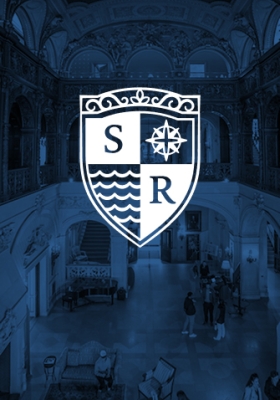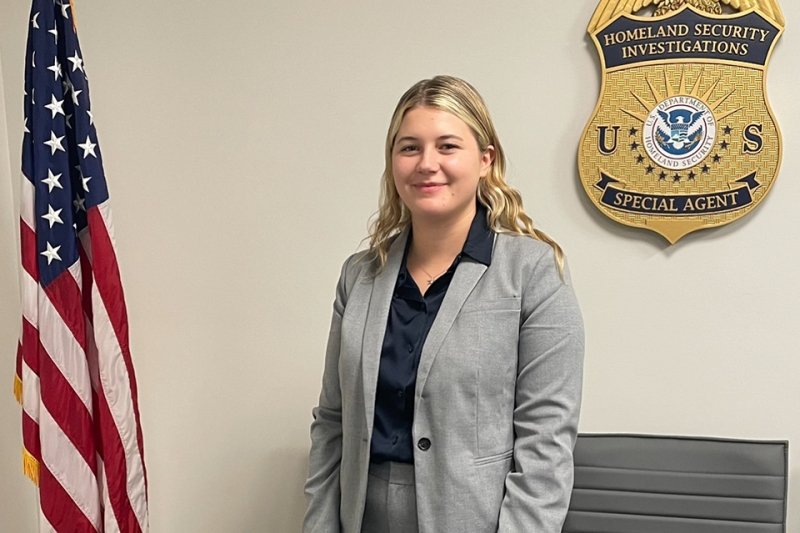Criminal Justice and Cybersecurity Certificates

Now enrolling for fall 2025
Strengthen Your Career With Specialized Skills
Salve Regina University's graduate certificates in cyberthreat management and response, intelligence and analysis tradecraft, and leadership in justice empower you to deepen your knowledge and broaden your career opportunities. These focused programs deliver practical, real-world skills in areas that are timely, relevant and in demand across sectors.
Each certificate is only four courses, and fully stackable toward the master’s degree, giving you the flexibility to begin with a focused area of interest and build toward a comprehensive graduate education. Whether you're just starting out in your career or looking to grow in your current role, this pathway offers both immediate impact and long-term opportunity.
Program Features
Four courses offered fully online with an average time to complete of 8-12 months.

$2,190 per course. Financial aid and veterans' benefits available.
Purpose-Driven Education
The evolving role of professionals in justice, government, security and law enforcement settings demand innovative leadership that creates a culture and climate founded in respect, ethics and integrity. Guided by Salve’s mercy mission, our criminal justice and cybersecurity certificates will prepare you to serve your community with empathy and compassion.

Graduate Certificates
Our certificates are designed for professionals who hold a bachelor's or master's degree and are seeking professional development in topics crucial to today's technological environment.
Students in good academic standing who would like to continue their studies may apply to the M.S. in criminal justice and cybersecurity program and carry the credits forward. Coursework is primarily asynchronous, with some limited live sessions.
Graduate certificate in cyberthreat management and response
Our graduate certificate in cyberthreat management and response prepares you to actively address issues and stay ahead of disruptive cyber events, empowering you to effectively manage and respond to emerging cyber threats. This four-course graduate certificate focuses on current conceptual and practical aspects of cybersecurity and domestic and international terrorism, equipping you to stay ahead of changing trends and challenges.
Who Will Benefit?
- Cybersecurity professionals
- Criminal and civil investigators
- Government officials and town managers
- Law enforcement leadership
- Business operations managers
- Senior executives in for-profit enterprises and nonprofit organizations
- Defense contractors
- Product engineers
See course requirements and degree plan.
Graduate certificate in intelligence and analysis tradecraft
Our four-course graduate certificate in intelligence and analysis tradecraft focuses on the conceptual and practical aspects necessary to perform intelligence work at the local level, at the state or federal level, internationally or in the private sector. Our program uses case studies and intelligence community standards to develop your abilities to collect, critically analyze and document information to maximize its value to intelligence consumers and decision makers.
Who Will Benefit?
- Law enforcement leadership
- Fusion center specialists
- Intelligence analysts
- Criminal and civil investigators
- Corporate leaders
- Security professionals
- Defense contractors
See course requirements and degree plan.
Graduate certificate in leadership in justice
Professionals in the justice field face the challenge of reducing and managing crime with limited resources, protecting the public, improving community relations, and fostering collaboration across agencies and departments. Our graduate certificate in leadership in justice equips you with the skills to lead effectively in this complex and rapidly changing environment.
In this four-course program, you will learn to uphold high standards of integrity and ethical values, and to lead in a way that reflects those principles - strengthening both your leadership capacity and your organization.
Who Will Benefit?
- Government officials and town managers
- Law enforcement leadership
- Criminal justice educators
- First responders
- Training specialists
Meet Our Experts
With longtime experience in their profession, our faculty know their craft. Using a blend of academic and practice approaches, they teach not just theory, but also how it applies to the work you are doing in your chosen field. Through small class sizes and personal attention, you will receive a high-touch educational experience.

Michael Teeter
- Lecturer
- Graduate program director

John Alfred
- Adjunct professor

Dr. Carole Angolano
- Adjunct professor

Robert Antonellis
- Adjunct professor

Giana Battista
- Adjunct professor

Clara Decerbo
- Adjunct professor

Tyler Hayes
- Adjunct professor

Brian Macera
- Adjunct professor

Michael McMasters
- Adjunct professor

Denis Riel
- Adjunct professor

Barrett Wann
- Adjunct professor

Dr. G. Anthony Wolusky
- Adjunct professor



